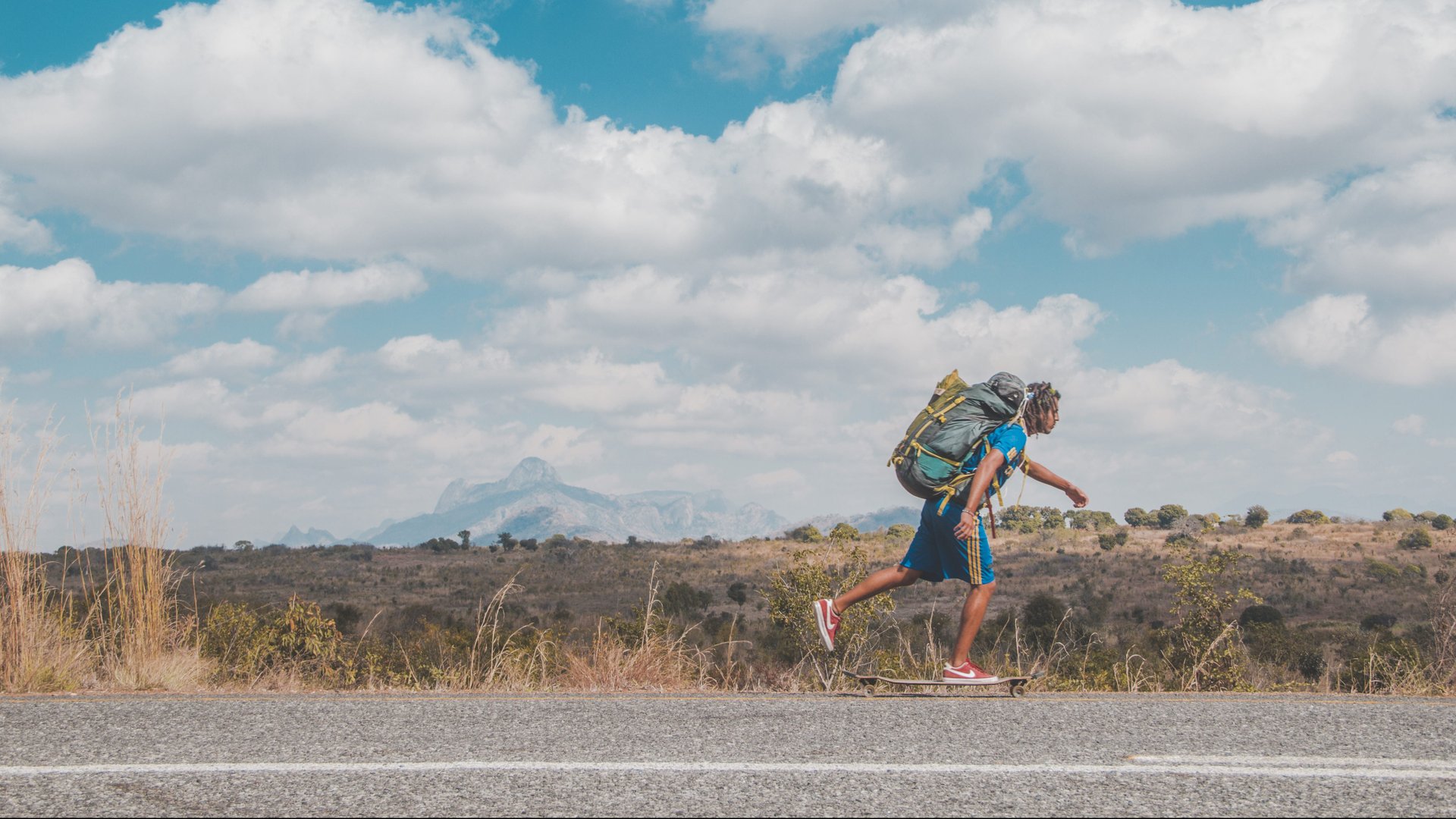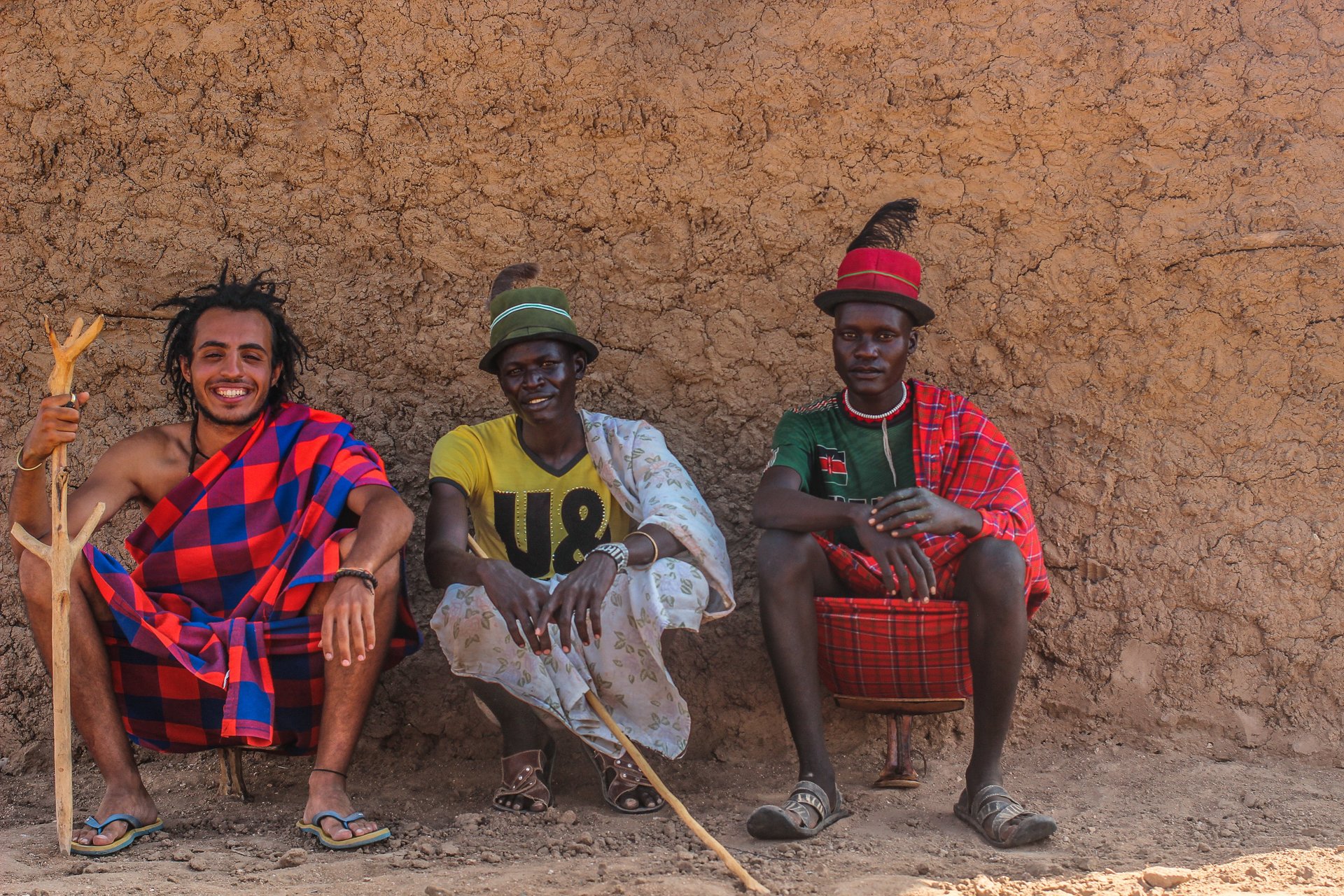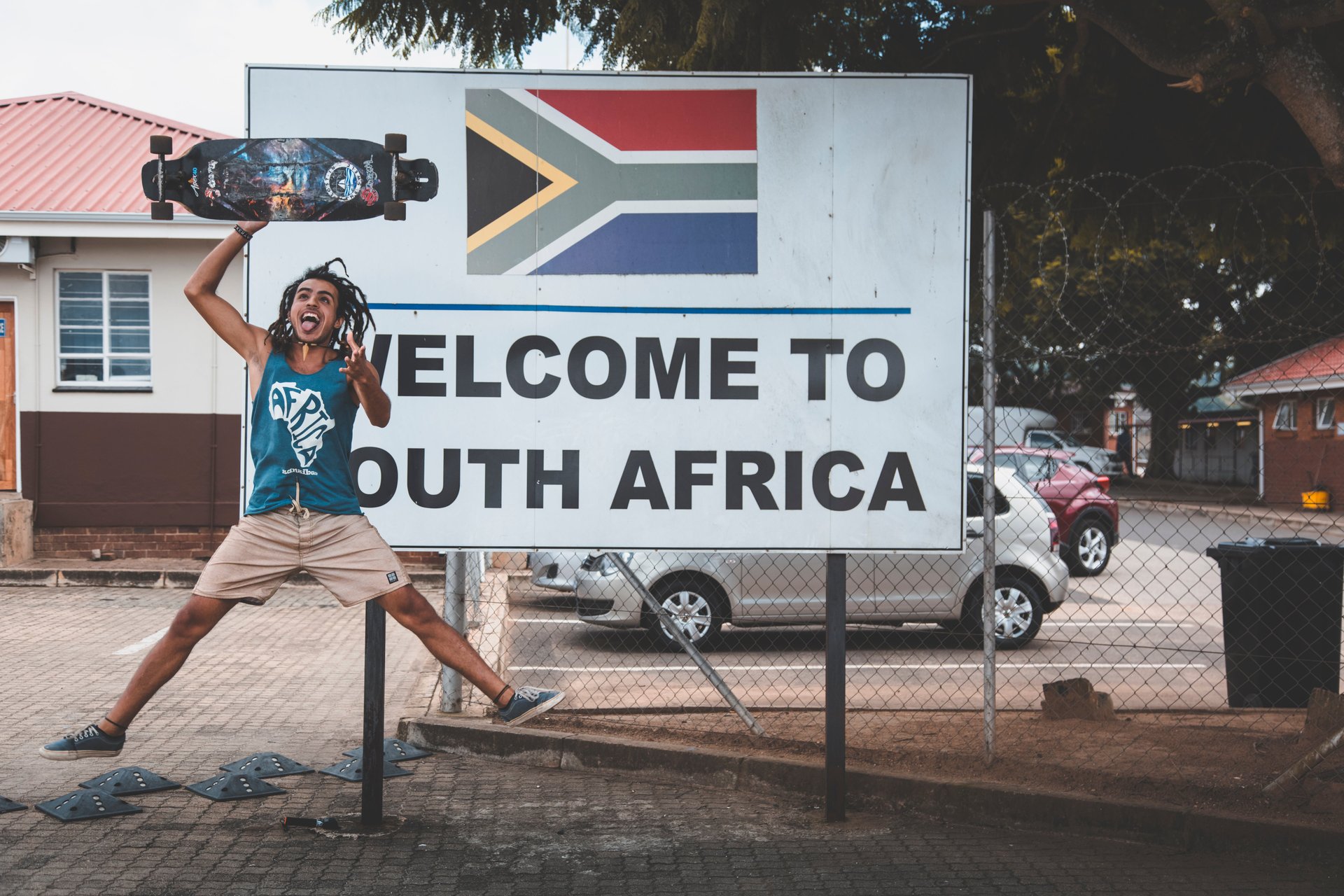A new Showmax documentary dispels myths about traveling around Africa
Twenty-year-old Othmane Zolati left his home country, Morocco, in 2015 with $80, a backpack, and a pocket camera. After going through 18,000 miles and 24 countries in almost four years, he got to Cape Agulhas, the southernmost tip of Africa in South Africa and a dream destination for him. He had backpacked, walked, hitchhiked, cycled, and skateboarded through the continent.


Twenty-year-old Othmane Zolati left his home country, Morocco, in 2015 with $80, a backpack, and a pocket camera. After going through 18,000 miles and 24 countries in almost four years, he got to Cape Agulhas, the southernmost tip of Africa in South Africa and a dream destination for him. He had backpacked, walked, hitchhiked, cycled, and skateboarded through the continent.
Zolati’s journey is documented in a new Showmax documentary, Africa and I, which shows Africa’s beauty, its diversity, and its people’s generosity while dispelling stereotypes about the continent and also highlighting the challenges of traveling around the continent.
Africans generally hear about other African countries from western media. Stories such as Africa and I give power to Africans to tell narratives about their own continent, which is often covered in negative light by frequently biased western eyes. Africa and I joins other initiatives bolstered by social media that are about Africans taking control of how their stories are told.
Africa and I
show’s Othmane Zolati’s journey from Morocco to South Africa
Co-directed by Zolati and South Africa Chris Green, Africa and I takes viewers from Zolati’s home city of El Jadida to Cape Agulhas. It’s the story of a young Moroccan’s quest to see “Africa” – many Moroccans and other North Africans don’t consider their countries as part of Africa.
One of the notions that Zolati has to face in his journey is one that is generalized through negative media coverage that Africa is a dangerous place. Moroccans, he narrates in the documentary, think that Africa is a land of war and poverty where you can get kidnapped, killed, and have your body parts taken and a place where there are diseases like malaria, yellow fever, and Ebola, and no healthcare. In Senegal, while Zolati plans to embark on his next trip, to Guinea, Senegalese people advise him against it, telling him other African countries are unfriendly, inhospitable, and unsafe.
“(These are) the ideas that we get from the media,” he says in the documentary.
But these negative comments increase Zolati’s curiosity and make him want to discover the continent more. What he finds, instead, is time after time a friendly, generous hospitable continent where people welcome him despite being a stranger and try to give him the best experience by giving him rides on their vehicles, places to sleep, sharing their meals with him and showing him their cultures.
“My intention in traveling was to collect and share as much objective material as I and, my camera, could collect,” he tells Quartz. “In retrospect, I made the right choice and continued my trip.”

Some of the people Zolati encounters are going through tough times but, as he observes, Africans know how to adapt and work through it. An example is the presence of a small, impressive music studio in a Ghanaian village where a rapper he meets called Pop Spanner records his music. It has basic equipment, but they make professional-standard sounds.
“This is how people are,” he says in the documentary. “They try to make the best out of it, and try to reach their dreams or their goals with any way possible.”
African countries have unfriendly immigration rules for Africans
Traveling in Africa is difficult for Africans due to unfriendly immigration rules and other reasons. In fact, North Americans have easier travel access to the continent than Africans themselves, according to a report by the African Development Bank.
Zolati comes face to face with this challenge in Africa and I. While in Benin, he’s denied visas to get into Nigeria and Chad. He explains to Quartz that officials asked him to go apply for the visas in Morocco because he didn’t have a resident permit. Zolati is forced to take a flight from Benin to Ethiopia and continue his journey to South Africa from there.
Also, Zolati’s journey faces a premature end just before the last stage as his visa application for South Africa is rejected in Namibia, where he’s told he has to get it from Morocco since he doesn’t have a resident permit. He moves to three different countries to apply for the visa but gets rejections every time, until, at a point of desperation, he meets someone at the Moroccan embassy in Mozambique who helps him by contacting another person at the South African embassy in Mozambique.
“I’m a survivor,” Zolati tells Quartz about his visa experience.

Finally reaching Cape Agulhas was one of the happiest moments of Zolati’s life.
“They told me that you can’t do it. They told me they’re gonna eat you. They told me that it’s impossible to achieve,” he says in the documentary. “But here I am. Looking at my goal, the southernmost tip of Africa. It wasn’t easy, but it’s worth it.”
Sign up to the Quartz Africa Weekly Brief here for news and analysis on African business, tech, and innovation in your inbox.